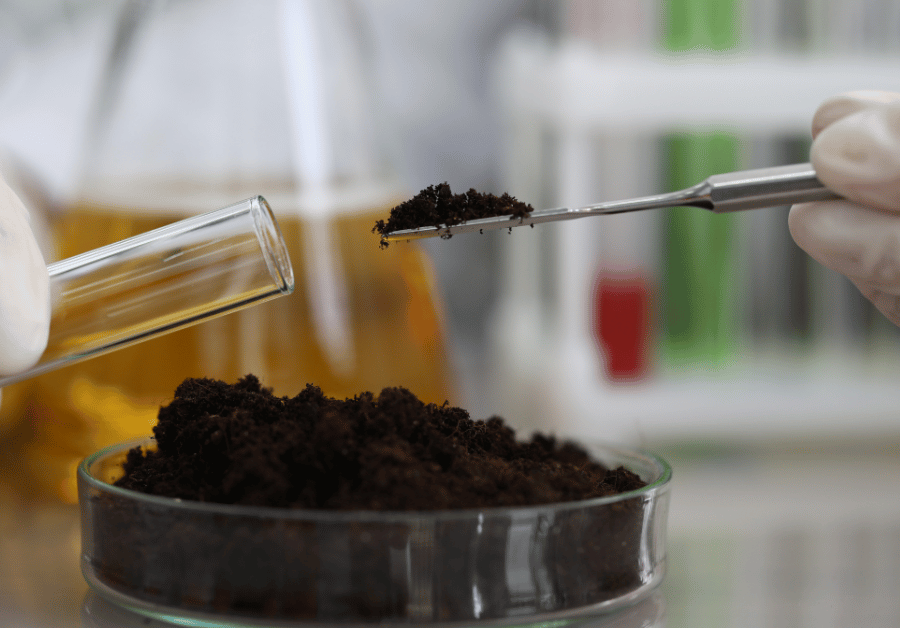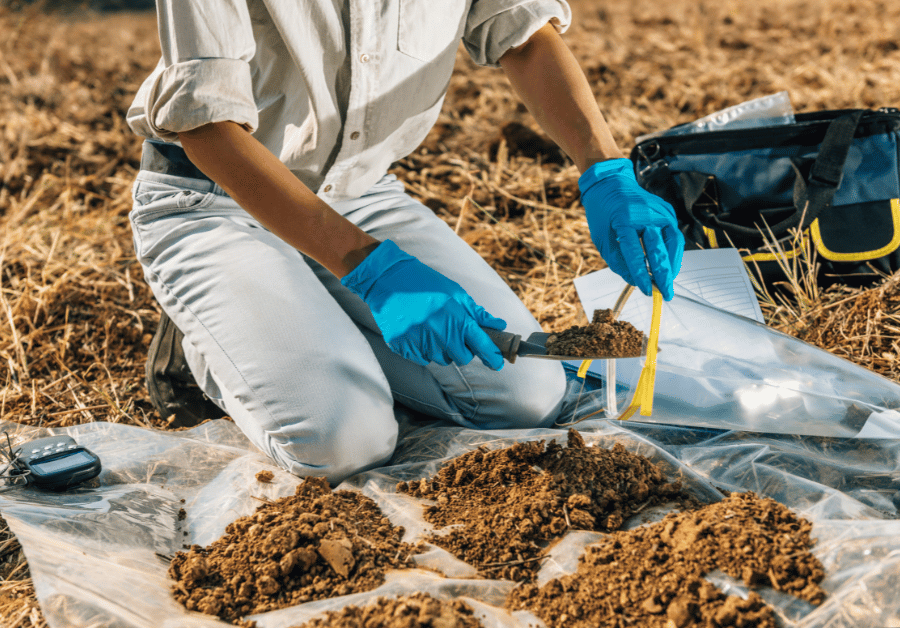Soil Testing Australia: Your Essential Guide for Aussie Homes & Projects
Thinking about building a new home, landscaping your garden, or starting a major renovation? Don't skip the crucial step of soil testing. In Australia, understanding your soil is essential for the success and safety of any project, from a simple backyard makeover to large-scale construction. This guide will walk you through everything you need to know about soil testing in Australia, helping you make informed decisions and avoid costly mistakes.
Why Soil Testing Matters in Australia
Australia's diverse landscape means our soil types vary dramatically, even within the same city. Soil testing provides vital information about:
- Soil Composition: Identifying the proportions of sand, silt, clay, and organic matter.
- pH Levels: Determining acidity or alkalinity, crucial for plant growth and concrete durability.
- Nutrient Content: Assessing the availability of essential nutrients for healthy plant life.
- Contaminants: Detecting pollutants like heavy metals or asbestos, which can pose health risks.
- Soil Stability: Evaluating the soil's ability to support structures, essential for building foundations.
Ignoring soil testing can lead to:
- Structural Issues: Foundation problems in new buildings due to unstable soil.
- Poor Plant Growth: Unhealthy or dying plants due to unsuitable soil conditions.
- Health Hazards: Exposure to soil contaminants.
- Costly Repairs: Expensive remediation work to fix problems that could have been prevented.
When Do You Need Soil Testing?
Here are some common situations where soil testing is highly recommended:
- Building a New Home: Essential for site classification and foundation design.
- Major Renovations: Especially if involving structural changes or excavation.
- Landscaping Projects: To ensure healthy plant growth and prevent soil erosion.
- Buying a Property: To identify potential contamination issues before you commit.
- Suspected Contamination: If there's a history of industrial activity or chemical use on the site.
- Before Installing Septic Systems: To assess soil drainage and suitability.
Types of Soil Tests Available in Australia
The type of soil test you need will depend on your specific project. Here are some common options:
- pH Test: Measures the acidity or alkalinity of the soil.
- Nutrient Test: Determines the levels of essential nutrients like nitrogen, phosphorus, and potassium.
- Contamination Test: Screens for pollutants like heavy metals, pesticides, and asbestos.
- Soil Stability Test: Assesses the soil's bearing capacity and potential for settlement.
- Salinity Test: Measures the salt content of the soil, important in coastal areas.
- Dispersion Test: Determines how easily soil particles separate, indicating potential erosion risk.
The Soil Testing Process: What to Expect
Here's a general overview of the soil testing process:
- Planning: Contact Get 3 Quote to find qualified soil testers in your area (Sydney, Melbourne, Brisbane, Perth, Adelaide, Hobart). Discuss your project and testing needs.
- Sampling: The soil tester will collect samples from various locations and depths on your property.
- Laboratory Analysis: Samples are sent to a certified laboratory for analysis.
- Reporting: You'll receive a detailed report outlining the soil's properties and any potential issues.
- Recommendations: The report may include recommendations for soil improvement, foundation design, or remediation strategies.
Choosing a Soil Testing Company in Australia
Selecting the right soil testing company is crucial. Look for the following:
- Accreditation: Ensure the company is accredited by a relevant Australian authority (e.g., NATA).
- Experience: Choose a company with a proven track record in your local area.
- Reputation: Read online reviews and ask for references.
- Comprehensive Services: Ensure they offer the specific tests you need.
- Clear Communication: They should be able to explain the testing process and results in plain English.
- Competitive Pricing: Get quotes from multiple companies to compare costs. Get 3 free quotes now
Soil Testing Costs in Australia
The cost of soil testing varies depending on the type of tests required, the size of your property, and your location. Generally, you can expect to pay:
- Basic pH and Nutrient Test: $50 - $150
- Contamination Test: $200 - $500+
- Soil Stability Test: $300 - $800+
- Full Site Classification: $500 - $1500+
It's always best to get a detailed quote from a soil testing company before proceeding.
Understanding Your Soil Test Results

Your soil test report will contain a lot of technical information, but here are some key things to look for:
- Soil Type: Identify the dominant soil type (e.g., sandy, clay, loam).
- pH Level: Optimal range is typically 6.0 - 7.0 for most plants.
- Nutrient Levels: Adequate levels of nitrogen, phosphorus, and potassium are essential for plant growth.
- Contaminant Levels: Compare results to Australian standards to determine if remediation is required.
- Soil Stability: Assess the soil's bearing capacity and potential for settlement.
Improving Your Soil
If your soil test results reveal any issues, there are several ways to improve your soil:
- Adding Organic Matter: Compost, manure, and other organic materials can improve soil structure, drainage, and nutrient content.
- Adjusting pH: Lime can raise pH (make soil less acidic), while sulfur can lower pH (make soil more acidic).
- Adding Fertilizers: Use fertilizers to supplement nutrient deficiencies.
- Improving Drainage: Install drainage systems to prevent waterlogging.
- Remediation: Remove or treat contaminated soil.
Find local soil experts who can guide you through the process of improving your soil.
Soil Testing in Different Australian Cities
Soil conditions can vary significantly across Australia. Here's a brief overview of some major cities:
- Sydney: Often has clay-rich soils that can be prone to waterlogging.
- Melbourne: Features a mix of soil types, including sandy soils in coastal areas and clay soils inland.
- Brisbane: Characterized by acidic soils that may require lime amendments.
- Perth: Known for its sandy soils that drain quickly but may be nutrient-poor.
- Adelaide: Has alkaline soils that can be challenging for some plants.
- Hobart: Features a variety of soil types, including volcanic soils in some areas.
Connect with local professionals who understand the specific soil challenges in your area.
Common Misconceptions About Soil Testing
Let's clear up some common misconceptions:
- "I don't need soil testing for a small garden." Even small gardens can benefit from soil testing to ensure healthy plant growth.
- "All soil testing companies are the same." Accreditation, experience, and reputation matter.
- "Soil testing is too expensive." The cost of soil testing is minimal compared to the potential cost of fixing problems caused by poor soil conditions.
- "I can just guess what's wrong with my soil." Soil testing provides accurate and objective data.
- Question 1: Do I need soil testing for a small landscaping project?Question 2: What happens if I skip soil testing before building?
Conclusion
Soil testing is an essential investment for any Aussie home or project. By understanding your soil, you can prevent costly problems, ensure healthy plant growth, and create a safe and sustainable environment. Don't leave it to chance – get your soil tested today!
Where can I find a reputable soil testing company?
Use Get3Quote to connect with trusted local professionals.
Ready to get started? Get free quotes from qualified soil testers in your area at Get3Quote.com.au. Ensure the success of your next project with the right soil knowledge.
